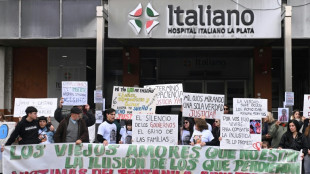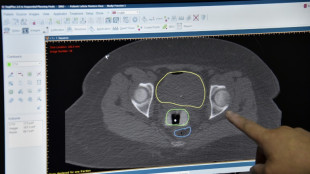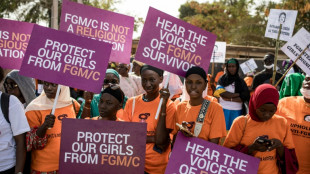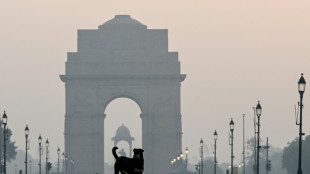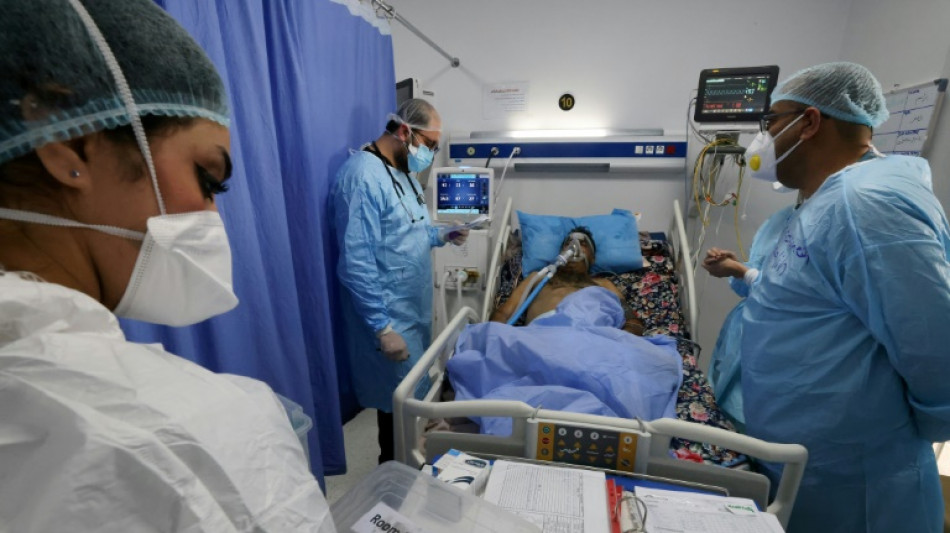
-
 Global plastic pollution treaty talks extended in 'haze' of confusion
Global plastic pollution treaty talks extended in 'haze' of confusion
-
Trump's tariffs have not reduced Panama Canal traffic -- yet

-
 YouTube turns to AI to spot children posing as adults
YouTube turns to AI to spot children posing as adults
-
Sky's the limit for Duplantis ahead of 'super-sick' Tokyo worlds

-
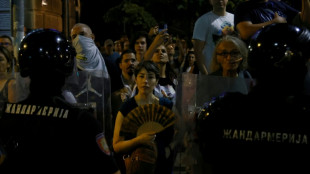 New clashes in Serbia as political crisis escalates
New clashes in Serbia as political crisis escalates
-
Sinner swamps Auger-Aliassime in Cincinnati power display
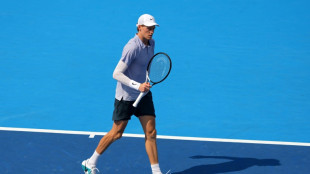
-
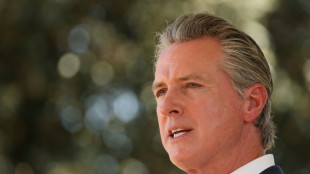 California to change election maps to counter Texas, governor says
California to change election maps to counter Texas, governor says
-
Apple Watch gets revamped blood oxygen feature
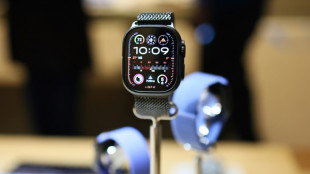
-
 Trump vows not to be intimidated ahead of Putin summit
Trump vows not to be intimidated ahead of Putin summit
-
Dueling interests for Trump and Putin at Alaska summit

-
 Global plastic pollution treaty talks in a 'haze'
Global plastic pollution treaty talks in a 'haze'
-
Bristol sign Wales wing Rees-Zammit after NFL dream ends

-
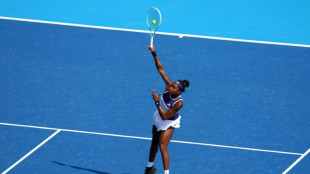 Gauff cruises into Cincinnati quarter-final with Paolini
Gauff cruises into Cincinnati quarter-final with Paolini
-
Apple rejects Musk claim of App Store bias
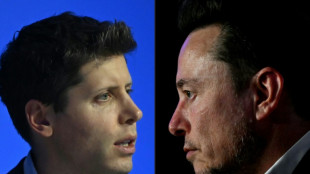
-
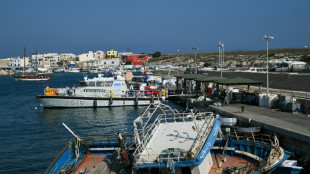 Searchers seek missing after deadly Italy migrant shipwreck
Searchers seek missing after deadly Italy migrant shipwreck
-
Air Canada cancels flights over strike threat
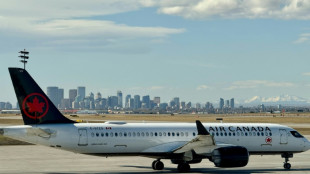
-
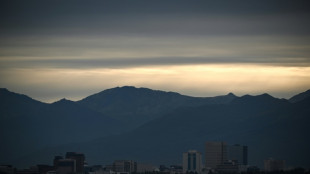 Trump turns history on head with Putin invitation to key US base
Trump turns history on head with Putin invitation to key US base
-
Gauff dominates Bronzetti to reach Cincinnati last eight
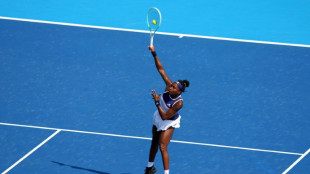
-
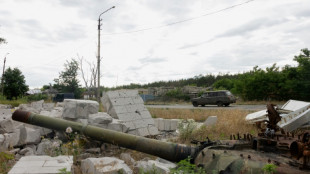 UN warns Russia, Israel of conflict sex crimes listing risk
UN warns Russia, Israel of conflict sex crimes listing risk
-
Flood kills 46 in Indian Kashmir mountain village
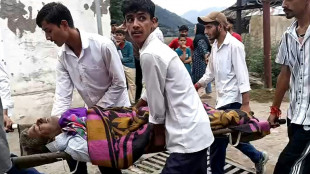
-
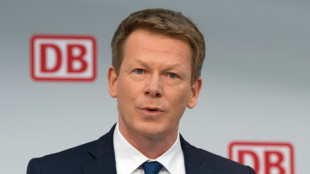 Germany sacks rail chief with train network in crisis
Germany sacks rail chief with train network in crisis
-
Trump says Putin summit could fail, promises Ukraine say
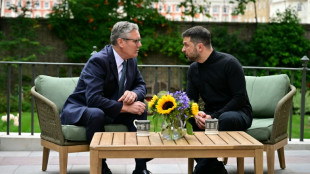
-
 Lyles v Thompson in re-run of Olympic 100m final in Silesia
Lyles v Thompson in re-run of Olympic 100m final in Silesia
-
LA 2028 to sell venue name rights in Olympic first

-
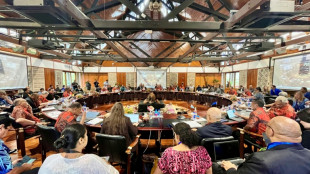 Solomon Islands says China not influencing diplomatic decisions
Solomon Islands says China not influencing diplomatic decisions
-
Flood kills 37 in Indian Kashmir mountain village
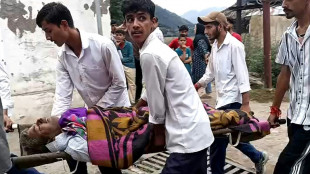
-
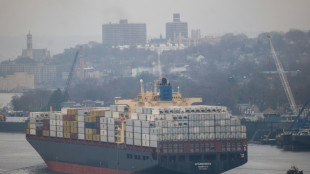 US stocks drop as producer inflation surges
US stocks drop as producer inflation surges
-
Greenpeace stages Anish Kapoor art protest on UK gas platform
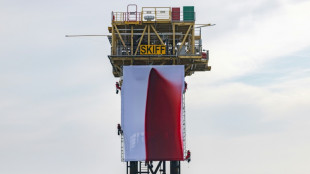
-
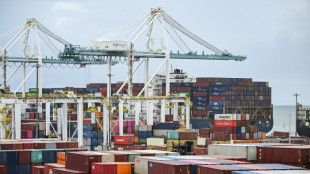 US producer inflation highest in three years in July
US producer inflation highest in three years in July
-
Greek firefighters beat back wildfires
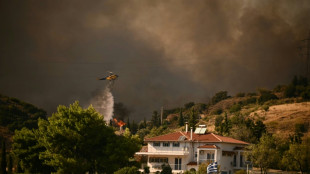
-
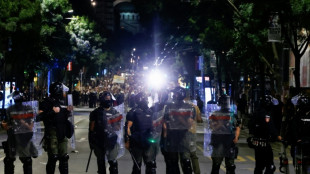 Serbia's political crisis escalates into clashes
Serbia's political crisis escalates into clashes
-
Australia recall O'Connor to face champions South Africa

-
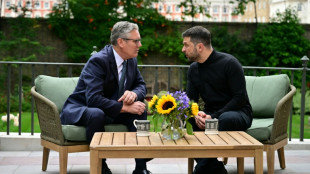 Kremlin says Putin, Trump to hold 'one-on-one' talks in Alaska
Kremlin says Putin, Trump to hold 'one-on-one' talks in Alaska
-
Stocks diverge as bitcoin hits record high

-
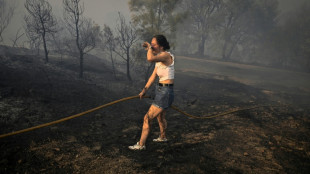 Spain suffers third wildfire death, Greece beats back flames
Spain suffers third wildfire death, Greece beats back flames
-
Liverpool 'agree deal' for Parma prospect Leoni

-
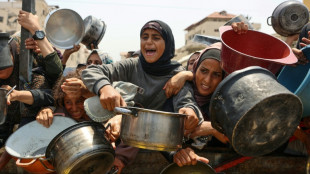 Foreign NGOs say new Israeli rules keep them from delivering Gaza aid
Foreign NGOs say new Israeli rules keep them from delivering Gaza aid
-
Japan's grand tea master Sen Genshitsu dies at 102: reports
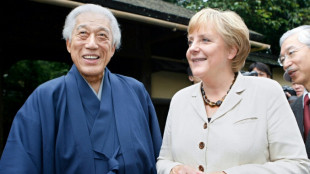
-
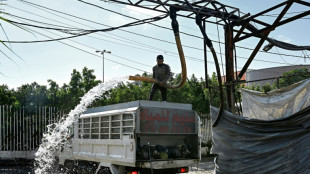 Water shortages plague Beirut as low rainfall compounds woes
Water shortages plague Beirut as low rainfall compounds woes
-
Germany's Thyssenkrupp cuts targets as US tariffs weigh
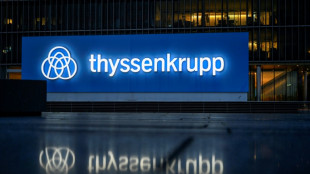
-
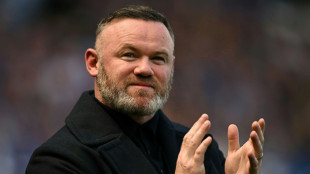 Brady didn't understand football, says Rooney after 'work ethic' jibe
Brady didn't understand football, says Rooney after 'work ethic' jibe
-
Greek firefighters make progress against wildfires
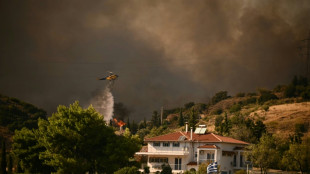
-
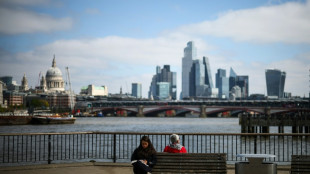 UK economy slows less than feared after tariffs
UK economy slows less than feared after tariffs
-
Markets mixed as bitcoin hits new high

-
 PSG begin French title defence as Pogba returns home and Paris FC step up
PSG begin French title defence as Pogba returns home and Paris FC step up
-
At least 40 dead in Sudan's worst cholera outbreak in years: MSF
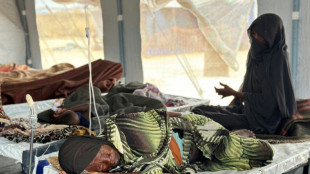
-
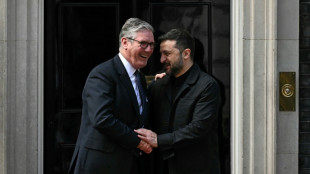 Zelensky in London to meet PM ahead of US-Russia summit
Zelensky in London to meet PM ahead of US-Russia summit
-
French dictionary gets bad rap over Congolese banana leaf dish
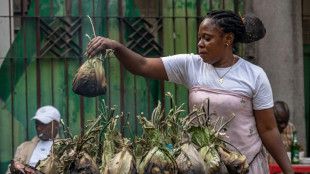
-
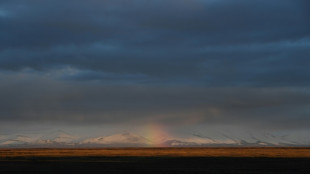 Alaska: a source of Russian imperial nostalgia
Alaska: a source of Russian imperial nostalgia
-
Last chance saloon for global plastic pollution treaty
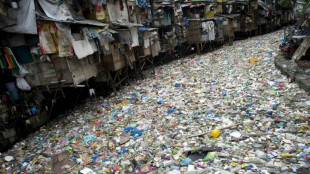

Covid rages in Iraq as vaccinations lag
In the stores and buses of Iraq masks are rare even as Covid-19 spreads widely, vaccines are viewed with suspicion and the sick see hospitals as a last resort.
At Al-Shifaa Hospital in the capital Baghdad, the ramifications are clear.
"More than 95 percent of those sick with Covid-19 in intensive care are unvaccinated," said Ali Abdel Hussein Kazem, assistant director of the facility.
Half of the 40 intensive care beds are occupied in the department, where irregular beeping from monitors and IV machines is constantly heard.
Al-Shifaa hospital has been turned into a Covid treatment centre since the start of the pandemic and can treat 175 patients.
Linked to breathing devices, an old man and a young woman share a large room, where a family member is allowed to monitor them -- masked and in a white protective outfit.
Next door, a man in his 60s fidgets, pushing away his blanket. An asthmatic, he is also hooked up to a ventilator.
"He says he is suffocating," an alarmed relative said, summoning a doctor.
Iraq's public health system, already worn down by decades of war, under-investment and corruption, has struggled to cope with the coronavirus.
Since January, Iraq's 40 million people have been confronted with a fourth coronavirus wave but -- unlike other countries -- the government has not imposed any restrictions.
Iraq has recorded more than 2.2 million infections and 24,000 deaths since the pandemic began two years ago, but data released by the authorities indicates that infections are now declining to around 2,000 new cases per day.
Despite 1,400 vaccination centres, officials struggle to overcome scepticism about the jabs, which health experts around the world say are saving lives.
- Help from abroad -
Fewer than 10 million people in Iraq, about a quarter of the population, have been vaccinated, said health ministry spokesman Seif al-Badr.
Among them, not even seven million have received two doses, and those with a booster number less than 100,000.
In neighbouring Iran, 66 percent of the 83-million population have received two doses.
"About 90 percent of the sick are older than 60," said Al-Shifaa's intensive care director Mohammed Salih, as he made his morning rounds, checking X-rays and giving instructions.
"Most have chronic conditions: diabetes, high blood pressure, kidney disease," Salih said, accompanied by doctors and nurses from Doctors Without Borders (MSF), a charity which is assisting the hospital.
Along with training that aims to "sustain the care", the MSF programme begun in November provides physiotherapy and mental health care, said Daniel Uche, a physician who heads the project.
Countering misinformation is another priority.
"Most of the pregnant women we admitted in our facility are not vaccinated because they are afraid for their precious babies, that maybe if they take the vaccine it will have an effect" on the infant, said Uche.
Salih said he noticed another trend: "Most of the patients come in only after reaching a critical stage."
They prefer to stay at home because of "social media" and "rumours" which minimise the gravity of the coronavirus or which raise suspicions about the vaccines, he added.
Those are the latest challenges for a health system crippled by decades of war and especially an international embargo under the dictator Saddam Hussein, who was toppled in a US-led 2003 invasion.
"People are afraid of hospital because of rumours that say they won't get proper care, and that we won't be interested in looking after them," a nurse said, requesting anonymity.
Two deadly fires at public hospital Covid-19 units last year sparked outrage among the population. One blaze killed more than 80 people in Baghdad in April and three months later another claimed at least 60 lives in Nasiriyah, southern Iraq.
- 'Be careful' -
Authorities acknowledge that challenges abound for a sector dealing with ageing equipment and shortages.
Badr, the ministry spokesman, said the health infrastructure in some provinces "was entirely destroyed" in the war against the Islamic State group jihadists from 2014-2017.
The health budget of the oil-rich country does not even receive two percent of state expenditures.
"For previous governments health care was not a priority," said Badr, adding that even though the system is challenged it is ready to help those who are sick with Covid-19.
"We have thousands of beds available for people who would have breathing difficulties. We also have medicine and the necessary equipment, as well as vaccines," he said.
At Al-Shifaa, Farouk Naoum, 75, is leaving hospital after his recovery. He was among the minority of Iraqis vaccinated with two doses of the Pfizer-BioNTech vaccine but despite the protection it offered, he still got infected.
"You have to be careful, very careful," he said after his 31 days of treatment.
W.Lapointe--BTB

